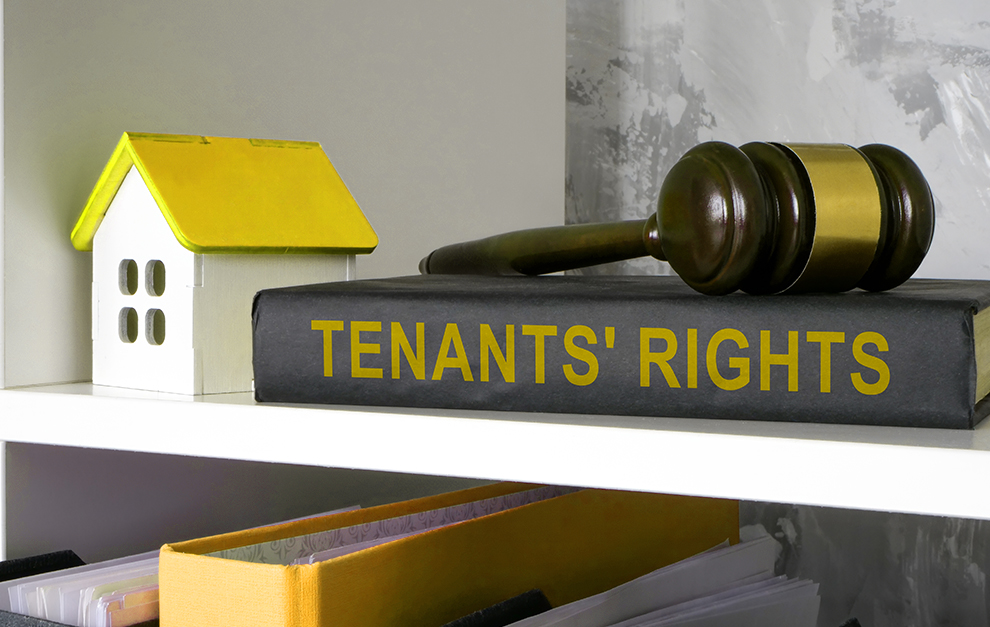Renting in 2025: Legal Rights Most Tenants Don’t Know

Renting in 2025 brings significant changes to tenant rights and landlord obligations. Many tenants remain unaware of these new protections and rules that can affect rent increases, lease terms, eviction processes, pet ownership, and privacy rights. This powerful guide breaks down the most important legal rights every tenant should know in simple language, helping you navigate the rental landscape confidently.
What You Need to Know About Renting in 2025
Rent Increases Are Limited to Once Per Year
Starting in 2025, rent increases can only happen once per year for all lease types, including fixed-term leases shorter than two years. This is a change from previous rules that limited increases only for longer leases or periodic tenancies.

Why this matters:
This limits sudden rent hikes, giving tenants more financial stability and predictability.
Case Study: Rent Increase Stability
Sarah, renting a one-year lease, was previously subject to multiple rent increases. Under the new law, her landlord can only raise rent once annually, helping her budget better.
Extended Notice Periods for Ending Leases
Landlords must now provide longer notice periods when ending a tenancy, giving tenants more time to plan their next move.
- Notice periods have been extended for both fixed-term and periodic leases.
- Landlords must provide valid reasons to terminate leases, supported by evidence.
Valid Reasons to End a Lease Include:
- Sale of the property
- Landlord or family member moving in
- Major renovations or demolition
- Tenant breach of lease terms
Case Study: Fair Notice in Action
Mark received a 90-day notice to vacate instead of 30 days after his landlord decided to renovate. This gave him ample time to find new accommodation without rushing.
Pet Ownership Rights Expanded
Tenants now have stronger rights to keep pets:
- Landlords must respond to pet requests within 21 days.
- Silence or failure to respond means automatic approval.
- Landlords can only refuse pets for specific reasons (e.g., property damage risk, safety concerns).
- However, strata by-laws banning pets still apply.
Why This Change Is Important
Many tenants struggled to keep pets due to blanket bans. This reform balances tenant preferences with landlords’ legitimate concerns.
Privacy and Access: Stronger Tenant Protections
- Landlords must provide at least 48 hours’ notice before entering a rental property (up from 24 hours).
- Entry frequency is limited, especially after a notice to end tenancy is issued.
- Limits on what personal information landlords can collect and how long they can keep it.
Case Study: Respecting Tenant Privacy
Emma’s landlord must now give her 48 hours’ notice before inspections, reducing unexpected intrusions and respecting her privacy.
New Rental Application Process
Starting May 2025:
- A standardized rental application form must be used.
- Tenants must be offered alternative ways to submit applications beyond online platforms.
- Limits on the information landlords can request from applicants.
Why This Matters
This levels the playing field for renters, reducing discrimination and protecting personal data.
The Renters’ Rights Bill, expected between late 2025 and early 2026, will abolish no-fault evictions, meaning landlords can no longer evict tenants without cause.
- All fixed-term tenancies will convert to periodic tenancies.
- Rent increases limited to once per year through Section 13 notices.
- Expanded grounds for eviction under Section 8, including rent arrears and property damage.
Case Study: Security for Long-Term Tenants
James, a tenant for 3 years, can no longer be evicted without a valid reason, providing him with housing security.
Protections Against Retaliation
New laws prevent landlords from retaliating against tenants who assert their rights, such as:
- Filing complaints about repairs
- Requesting inspections
- Reporting health or safety violations
If landlords take adverse actions within one year of a tenant exercising these rights, retaliation is presumed.
Rent Payment and Fees Regulations
- Landlords cannot charge extra fees for rent paid by check or other payment methods.
- Fees for serving notices or delivering documents are prohibited.
- Military service members may be charged higher security deposits but must receive explanations and timely refunds if no arrears occur.
Eviction Process Changes
- Written notice requirements and grace periods for remedying lease violations are mandatory.
- Many states require mediation or court hearings before eviction.
- Timeframes for tenants to respond to eviction notices have been extended (e.g., from 5 to 10 days).
- Courts have shortened delays that previously prolonged evictions.
Key Tenant Rights Changes in 2025
| Tenant Right | Previous Rule | New Rule (2025) |
|---|---|---|
| Rent Increase Frequency | Multiple times/year (varied) | Only once per year |
| Lease Termination Notice | 30 days (varied) | Extended notice periods (e.g., 90 days) |
| Pet Ownership | Often banned or landlord discretion | Automatic approval if no response in 21 days |
| Landlord Entry Notice | 24 hours | 48 hours |
| Eviction Without Cause | Allowed (Section 21) | Abolished; eviction only for cause |
| Retaliation Protection | Limited | Presumed if adverse action within 1 year of tenant complaint |
| Fees for Rent Payment | Allowed | Prohibited |
How Tenants Can Protect Their Rights in 2025

1. Know Your Lease Terms and Local Laws
Understand your lease and any new laws affecting your tenancy. Laws vary by state and country, so consult local tenant rights resources.
2. Document Everything
Keep records of communications, rent payments, repair requests, and notices.
3. Communicate Clearly and Promptly
Respond to landlord requests and provide written notices when needed.
4. Seek Help When Needed
Contact tenant advocacy groups, legal aid, or housing counselors if you believe your rights are violated.
Understanding Your Lease Agreement: What to Look for in 2025

Your lease agreement is a legally binding contract that outlines your rights and responsibilities as a tenant, as well as those of your landlord. In 2025, with evolving rental laws, it’s more important than ever to carefully review your lease before signing.
Key Lease Clauses to Review
- Rent Amount and Payment Terms: Confirm the rent amount, due date, acceptable payment methods, and penalties for late payment.
- Duration and Renewal: Understand the lease length, renewal terms, and any automatic renewal clauses.
- Maintenance and Repairs: Clarify who is responsible for repairs and maintenance, and the process for reporting issues.
- Pet Policies: Check any pet-related clauses, especially in light of new tenant-friendly pet laws.
- Entry Rights: Understand how and when your landlord can enter your unit, aligned with the new 48-hour notice rule.
- Termination and Eviction: Review conditions under which the lease can be terminated or eviction initiated.
- Security Deposit: Note the amount, conditions for withholding, and timelines for return.
Tips for Negotiating Your Lease
- Request clear language on rent increases and notice periods.
- Negotiate pet policies if you have or plan to have pets.
- Ask for provisions about repairs and habitability standards.
- Seek flexibility on lease length if your plans are uncertain.
Case Study: Lease Negotiation Success
Anna negotiated a clause requiring her landlord to fix heating issues within 7 days, ensuring her comfort during winter months.
Tenant Responsibilities: What You Must Do in 2025
While tenant rights are expanding, tenants also have responsibilities to maintain a good rental relationship and avoid disputes.
Key Tenant Responsibilities
- Pay Rent on Time: Consistently paying rent by the due date helps avoid penalties and eviction risks.
- Maintain Cleanliness: Keep the rental unit clean and free from damage beyond normal wear and tear.
- Report Repairs Promptly: Notify your landlord in writing about needed repairs to prevent further damage.
- Respect Neighbors: Avoid noise disturbances and follow community rules.
- Follow Lease Terms: Abide by all lease conditions, including pet policies and occupancy limits.
- Allow Reasonable Access: Permit landlord entry with proper notice for inspections or repairs.
Consequences of Neglecting Responsibilities
Failing to meet your responsibilities can lead to warnings, fines, or eviction. It may also affect your rental references for future housing.
How to Handle Repairs and Maintenance Issues
One of the most common tenant concerns is dealing with repairs and maintenance. In 2025, tenants have stronger rights to safe and habitable housing.
Your Rights Regarding Repairs
- Landlords must maintain rental properties in a safe, livable condition.
- Urgent repairs (e.g., water leaks, heating failures) must be addressed promptly.
- Tenants can request repairs in writing and keep records of all communications.
- If landlords fail to act, tenants may have options such as repair-and-deduct or withholding rent, depending on local laws.
Process for Reporting Repairs
- Notify your landlord or property manager in writing.
- Keep copies of all correspondence.
- Allow reasonable time for repairs to be made.
- Follow up if repairs are delayed.
Case Study: Successful Repair Resolution
John reported a mold problem in his apartment. After written requests and local health department involvement, his landlord completed the remediation within two weeks.
Tenant Resources and Support Services in 2025
Navigating rental laws and disputes can be challenging. Fortunately, many resources exist to help tenants understand and enforce their rights.
Where to Get Help
- Tenant Unions and Advocacy Groups: Provide advice, education, and sometimes legal assistance.
- Legal Aid Organizations: Offer free or low-cost legal representation for tenants facing eviction or disputes.
- Government Housing Agencies: Enforce housing codes and mediate landlord-tenant conflicts.
- Online Portals and Hotlines: Many regions offer websites and phone lines dedicated to tenant rights information.
How to Use These Resources Effectively
- Gather all relevant documents before seeking help.
- Be clear and concise about your issue.
- Follow up regularly and keep notes of all interactions.
How Technology Is Changing Renting in 2025
Technology continues to reshape how tenants and landlords interact, offering convenience but also raising new challenges.
Digital Lease Signing and Payments
- Electronic leases and signatures speed up the rental process.
- Online rent payment platforms offer automation and tracking.
Virtual Tours and Applications
- Virtual property tours save time and expand options.
- Standardized online applications improve fairness but require digital literacy.
Privacy Concerns
- Increased data collection by landlords requires vigilance about personal information security.
- Tenants should understand what data is collected and how it’s used.
Case Study: Using Technology to Secure Housing
Maria used virtual tours and online applications to secure an apartment in a competitive market without in-person visits.
Preparing for Lease Renewal or Moving Out in 2025
Knowing your rights and obligations at lease end is crucial to avoid disputes and secure your deposit.
Lease Renewal Tips
- Review any rent increase notices carefully.
- Negotiate lease terms if needed before signing renewal.
- Provide timely notice if you decide not to renew.
Moving Out Checklist
- Provide written notice per lease and local laws.
- Clean the unit thoroughly to avoid deposit deductions.
- Document the condition with photos or videos.
- Return all keys and provide a forwarding address.
Case Study: Deposit Dispute Avoided
After documenting her apartment’s condition, Lisa successfully recovered her full security deposit without dispute.
Renting in 2025: Navigating New Lease Agreements and Tenant Protections
When renting in 2025, tenants face a landscape shaped by updated laws and evolving landlord-tenant dynamics. Understanding how to navigate lease agreements under these new rules is essential to protect your rights and avoid common pitfalls.
What to Expect in Lease Agreements When Renting in 2025
Lease agreements in 2025 often include clauses reflecting recent legal changes, such as limits on rent increases and expanded tenant privacy protections. When renting in 2025, carefully reviewing these clauses can save you from future disputes.
- Rent Increase Clauses: Most leases will specify that rent can only be increased once per year, in line with new regulations.
- Pet Policies: With tenant-friendly pet laws, leases may now include clearer procedures for requesting pet permissions.
- Maintenance Responsibilities: Landlords are legally obligated to maintain safe and habitable properties, and leases will reflect these duties more explicitly.
- Entry Notices: Expect lease terms to require landlords to provide at least 48 hours’ notice before entering your unit.
Tips for Negotiating Your Lease When Renting in 2025
- Ask for written confirmation of rent increase limits.
- Clarify pet policies upfront, especially if you own or plan to get pets.
- Request detailed maintenance response times.
- Ensure your privacy rights are respected with clear entry notice terms.
Renting in 2025: How to Handle Rent Increases and Avoid Surprises
One of the biggest concerns for tenants renting in 2025 is managing rent increases. New laws limit how often and by how much landlords can raise rent, but understanding these rules is key to avoiding unexpected hikes.
What Are the Rent Increase Rules in 2025?
- Rent can only be increased once every 12 months regardless of lease length.
- Landlords must provide written notice of any rent increase at least 30 days before it takes effect.
- Some jurisdictions cap the percentage of allowable increases based on inflation or other factors.
How to Respond to a Rent Increase Notice
- Verify the notice complies with the 12-month rule.
- Check if the increase percentage aligns with local caps.
- Negotiate with your landlord if the increase seems unfair or unaffordable.
- Consider your options if you decide not to accept the increase, such as moving or seeking legal advice.
Case Study: Avoiding Unexpected Rent Hikes While Renting in 2025
When Alex received a rent increase notice six months into his lease, he referenced the new laws protecting tenants renting in 2025 and successfully challenged the landlord, preventing an illegal increase.
Renting in 2025: Understanding Your Rights During Eviction Proceedings
Eviction laws have changed significantly, offering tenants more protections when renting in 2025. Knowing your rights during an eviction can help you avoid losing your home unfairly.
Key Eviction Protections for Tenants Renting in 2025
- No-fault evictions are being phased out, meaning landlords must provide valid reasons to end tenancies.
- Tenants have longer notice periods to vacate, often 60 to 90 days depending on the reason.
- Courts require landlords to prove grounds for eviction, such as non-payment or lease violations.
- Retaliatory evictions against tenants exercising their rights are prohibited.
What to Do If You Face Eviction While Renting in 2025
- Request written notice detailing the eviction reason.
- Seek legal advice or tenant advocacy support immediately.
- Attend all court hearings and keep records of communications.
- Explore mediation options to resolve disputes without eviction.
Renting in 2025: How Tenant Privacy Has Improved
Privacy is a growing concern for tenants renting in 2025. New laws give tenants stronger control over who can enter their rental units and how their personal data is handled.
What Privacy Rights Do Tenants Have When Renting in 2025?
- Landlords must provide at least 48 hours’ notice before entering your unit, except in emergencies.
- Entry is limited to reasonable hours, typically during the day.
- Landlords cannot enter excessively or without cause, especially after a lease termination notice.
- Personal information collected during rental applications must be protected and used only for legitimate purposes.
How to Protect Your Privacy When Renting in 2025
- Keep a written record of all landlord entry notices.
- Ask landlords to specify reasons for entry and schedule visits at convenient times.
- Review privacy policies when submitting rental applications.
- Report any unauthorized entries or data misuse to tenant protection agencies.
Renting in 2025: The Rise of Tenant Advocacy and Support Networks
With the evolving rental laws, tenants renting in 2025 have more resources than ever to assert their rights and seek assistance.
What Tenant Advocacy Groups Offer in 2025
- Legal advice and representation for disputes.
- Educational materials on tenant rights and responsibilities.
- Mediation services to resolve landlord-tenant conflicts.
- Campaigns for stronger tenant protections and policy reforms.
How to Connect with Tenant Support When Renting in 2025
- Search for local tenant unions or housing rights organizations.
- Use government websites offering tenant resources.
- Join online forums and social media groups focused on renting issues.
- Attend workshops or webinars on tenant rights.
Summary of Key Tenant Rights When Renting in 2025
| Tenant Right | Description | How It Helps Tenants |
|---|---|---|
| Rent Increase Limits | Rent can only increase once per year | Prevents sudden, unaffordable rent hikes |
| Extended Notice Periods | Longer notice before lease termination | Gives tenants time to find new housing |
| Pet Ownership Rights | Automatic approval if landlord doesn’t respond | Enables tenants to keep pets more easily |
| Landlord Entry Notice | 48 hours’ notice required | Protects tenant privacy and reduces surprises |
| Abolition of No-Fault Evictions | Evictions require valid cause | Provides housing security |
| Retaliation Protection | Prevents landlord retaliation for tenant complaints | Encourages tenants to assert rights safely |
Conclusion
The rental landscape in 2025 is shifting towards greater tenant protections and fairness. By understanding the renting in 2025 legal rights most tenants don’t know, you can protect yourself from unfair rent hikes, eviction, privacy violations, and pet bans. Stay informed, communicate clearly, and assert your rights confidently.





